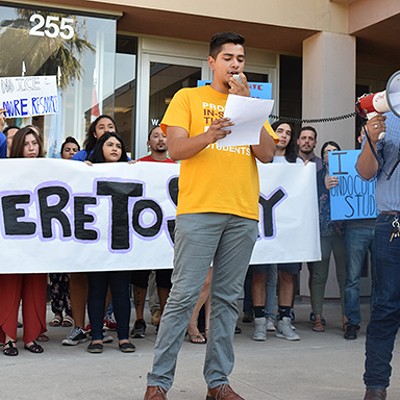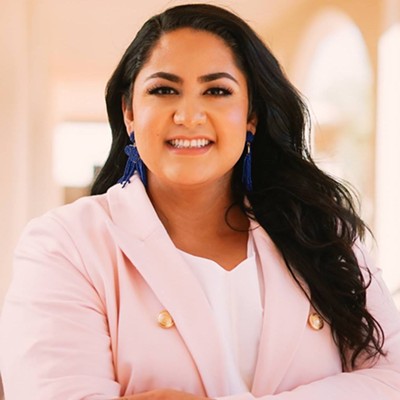Thursday, February 18, 2010
Grijalva: Save the Public Option!
Congressman Raul Grijalva thinks there's still hope for the public option in health-care reform:
As a co-chair of the Congressional Progressive Caucus, I have championed the creation of a public option since the health care reform debate began, and I believe its inclusion in a reconciliation bill is crucial. Over the past year, numerous economic analyses, including a Congressional Budget Office report, have shown the public option to be a major deficit reducer over the long term. The public option favoredby the Progressive Caucus and other health care champions, paying Medicare rates plus five percent, would save the government $110 billion over the first 10 years of its life, and even the version included in the House reform bill would save approximately $25 billion over that span. In addition to saving large sums of money, a public option would put downward pressure on private insurance prices across the board. The continuing rise of health care costs means that major reforms need to be enacted now, while the nation is politically focused on the issue. A short review of the situation shows the need for bold action. The Centers for Medicare and Medicaid Services estimate:
- overall health spending rose 5.7% last year, even as the economy struggled
- health care spending will rise to 19.3% of GDP by 2019
- the public sector will start paying more than half of the nation's health care bill starting in 2012 because of an aging population and a recession that has moved millions of people to government assistance
- spending on private health insurance premiums ($808.7 billion) is projected to have increased 3.3 percent in 2009, up from 3.1 percent in 2008
Furthermore, according to figures from the actuaries that compare costs on a "common benefits" basis, Medicare per capita costs grew at an average rate of 4.9 percent per year from 1998 to 2008, substantially less than the 7.1 percent rate for private insurance over that period. In other words, the government has done a better job of controlling health care spending than the private sector. As a government-run program, Medicare is popular because it is effective and keeps costs low. A public option would provide similar benefits to the country at large.
When it comes to reforming our health care system, America cannot afford half-measures or a barely adequate response. The final reform package must include a public health insurance option, because private insurers have not looked out for their customers during the economic recovery. A recent Health Care for America Now report on private insurance companies found that the largest five for-profit health insurance providers made $12 billion in profits last year while dropping 2.7 million policies. That is not a sustainable path to a healthier nation. A public option would address this problem in a number of ways that would save money:
- It would have far lower overhead costs than private insurers, enabling it to charge lower premiums. Medicare’s administrative costs, for example, are estimated to account for 2 percent to 5 percent of premiums compared with 25 percent to 40 percent of premiums in the individual insurance market.
- It would provide competition in an industry often defined by regional monopolies.
- It would never dramatically increase rates on short notice, as several private insurers are proposing to do this year.
- If properly subsidized, it would make insurance affordable for millions of currently uncovered Americans.
The recently announced decision by WellPoint in California to increase rates as much as 39 percent for some customers was not an isolated incident. A new report by the Department of Health and Human Services highlights similar proposed increases by insurers in Connecticut, Maine, Michigan, Oregon, Rhode Island, and Washington for those buying coverage as individuals because they lack employer-based coverage. In a lightly regulated industry with little record of protecting high-risk patients, we cannot allow bottom-line thinking to dictate America’s health care policies. We need a reasonable and comprehensive approach to ensure that all Americans are covered, that they have access to the care and medicines they need, and that no family goes bankrupt because of a catastrophic illness or injury. A public option is the best way to save the government tens of billions of dollars while reaching these goals.
Tags: Grijalva , health care reform , public option


















